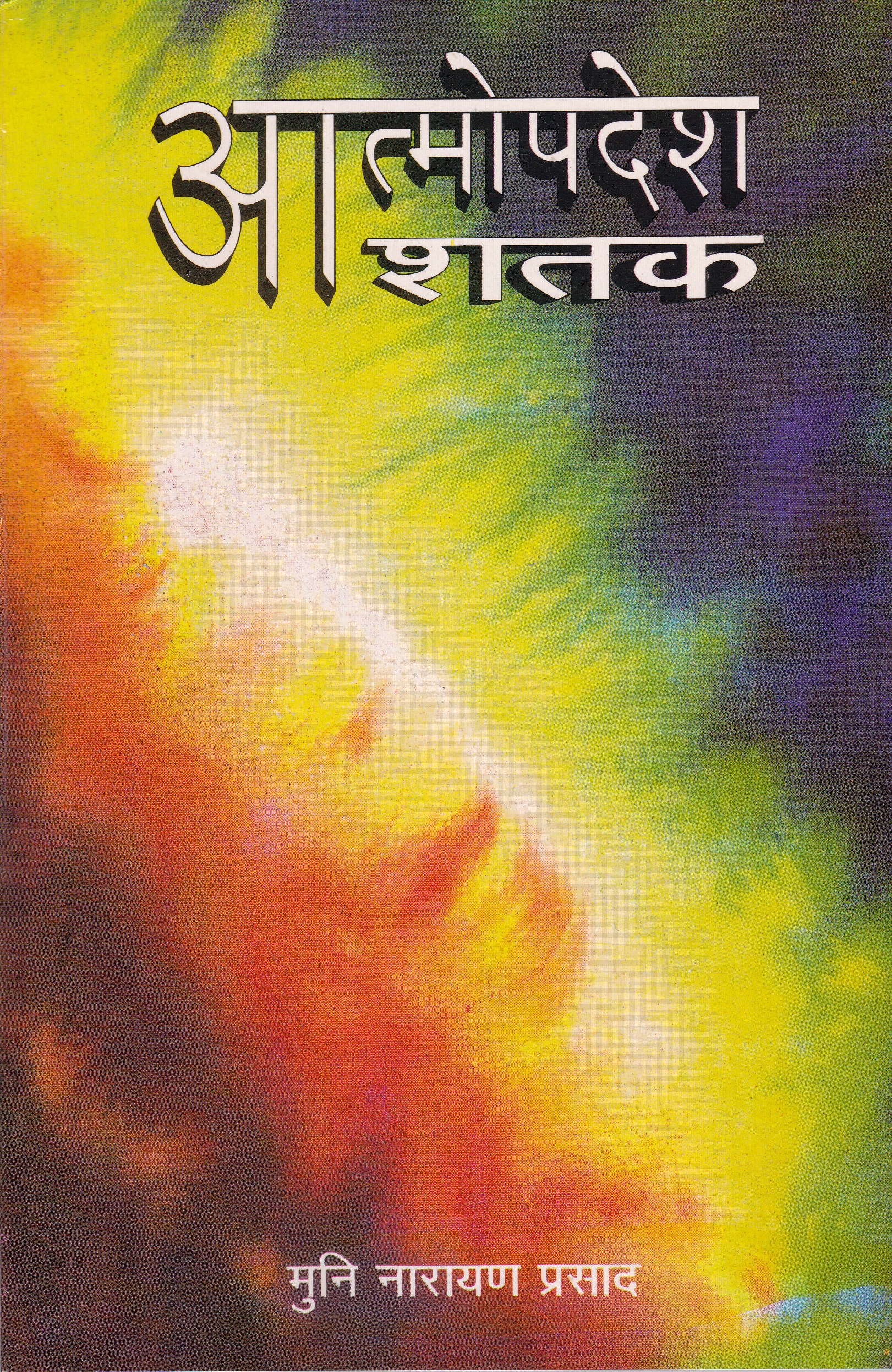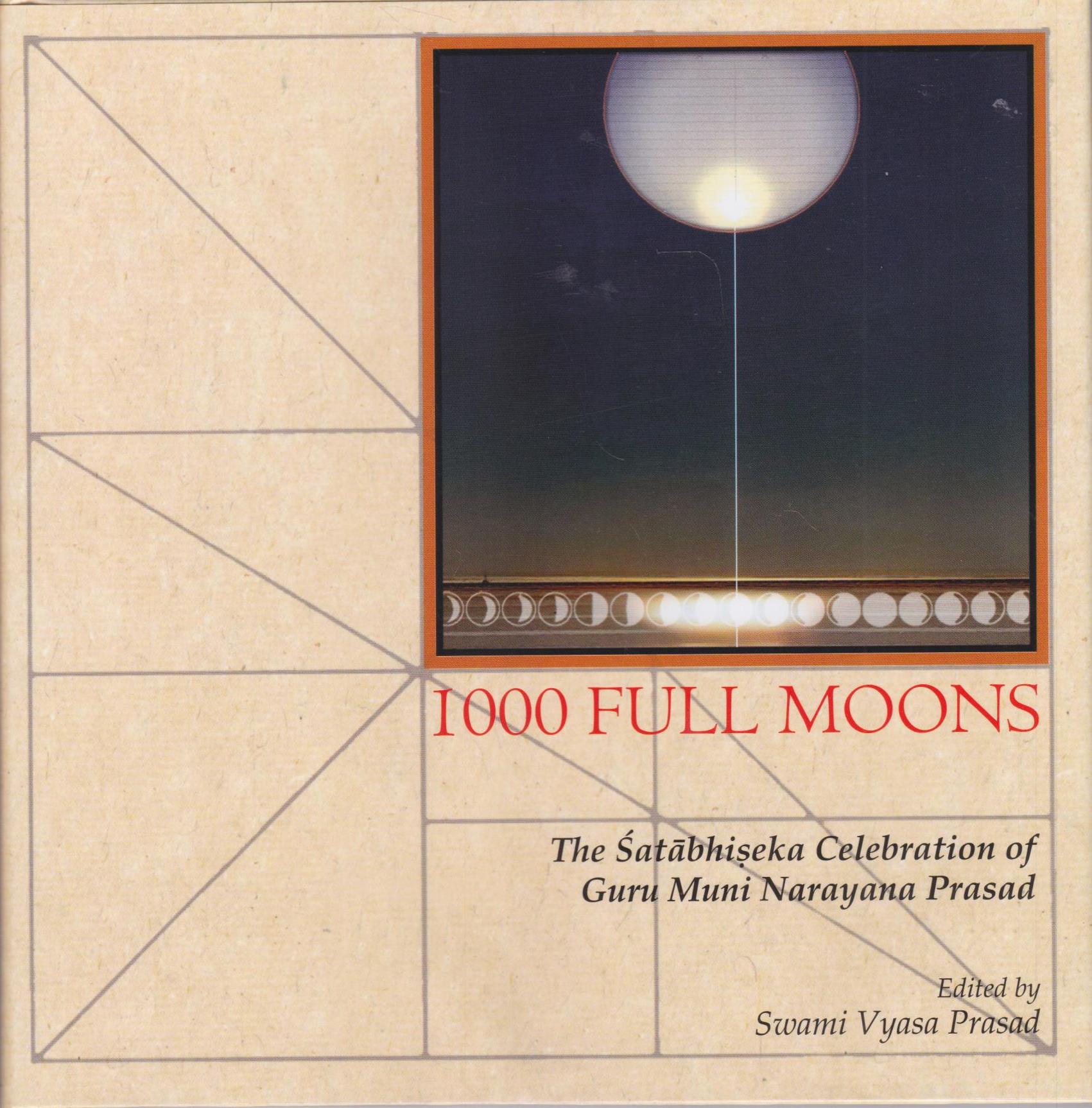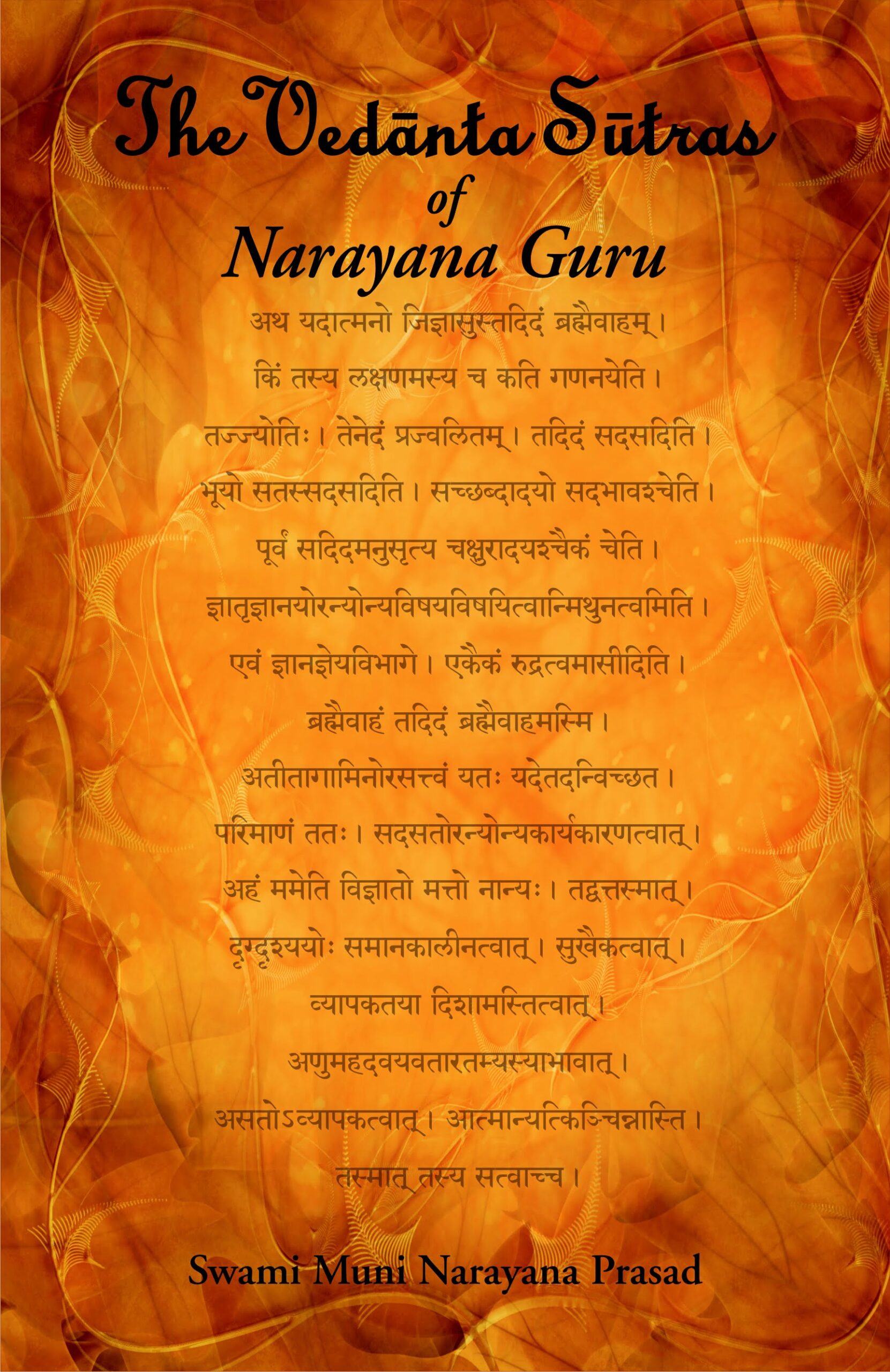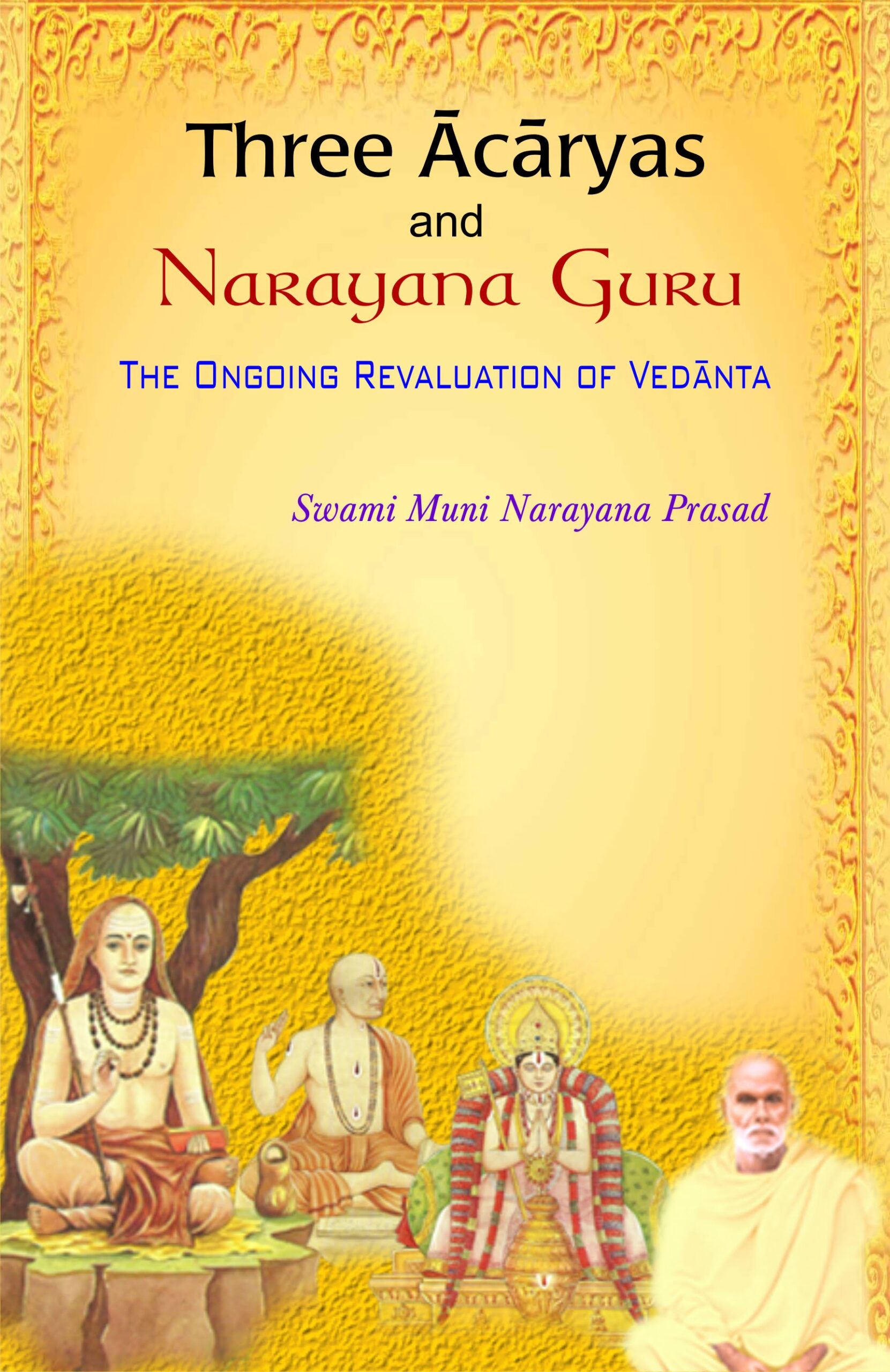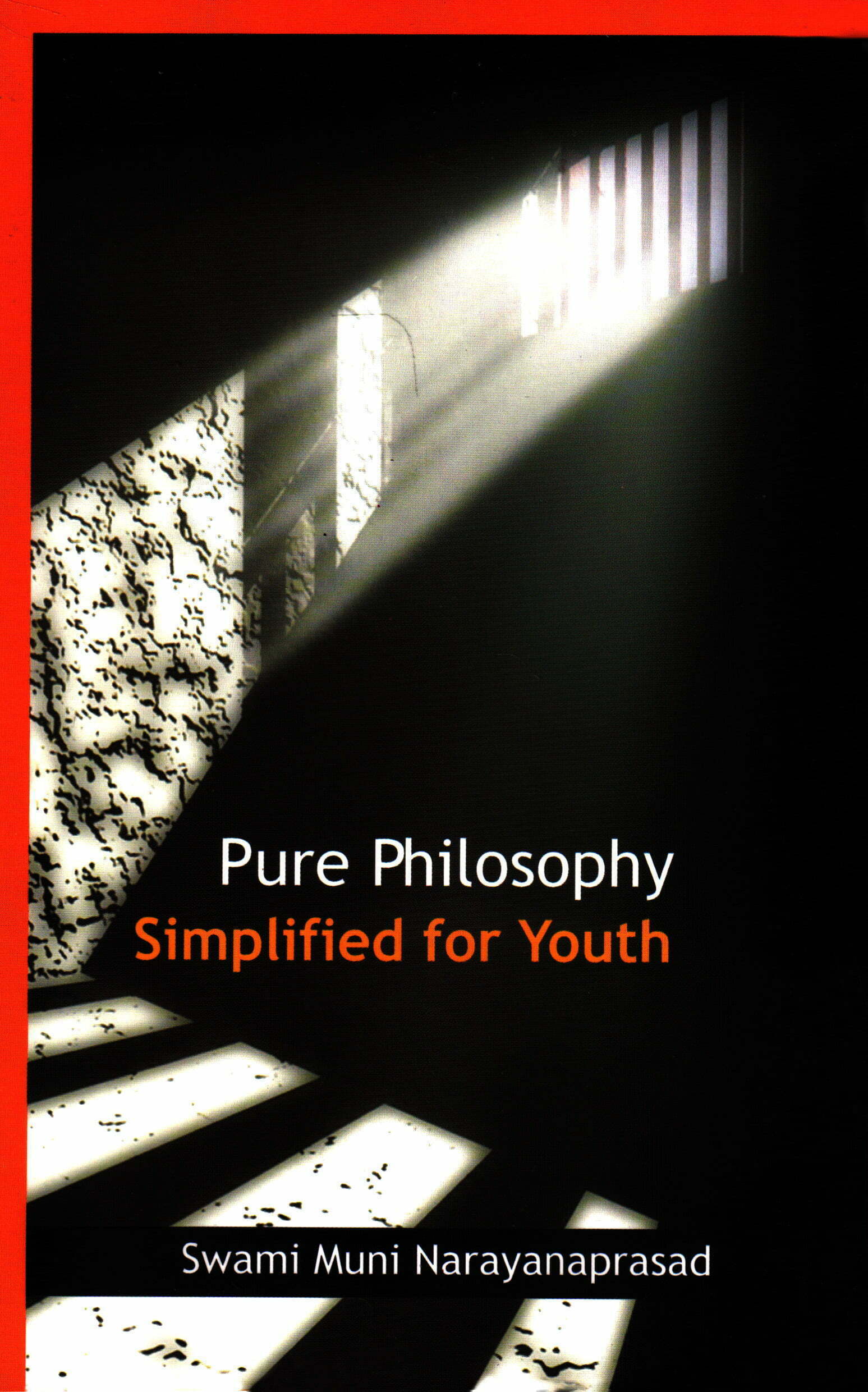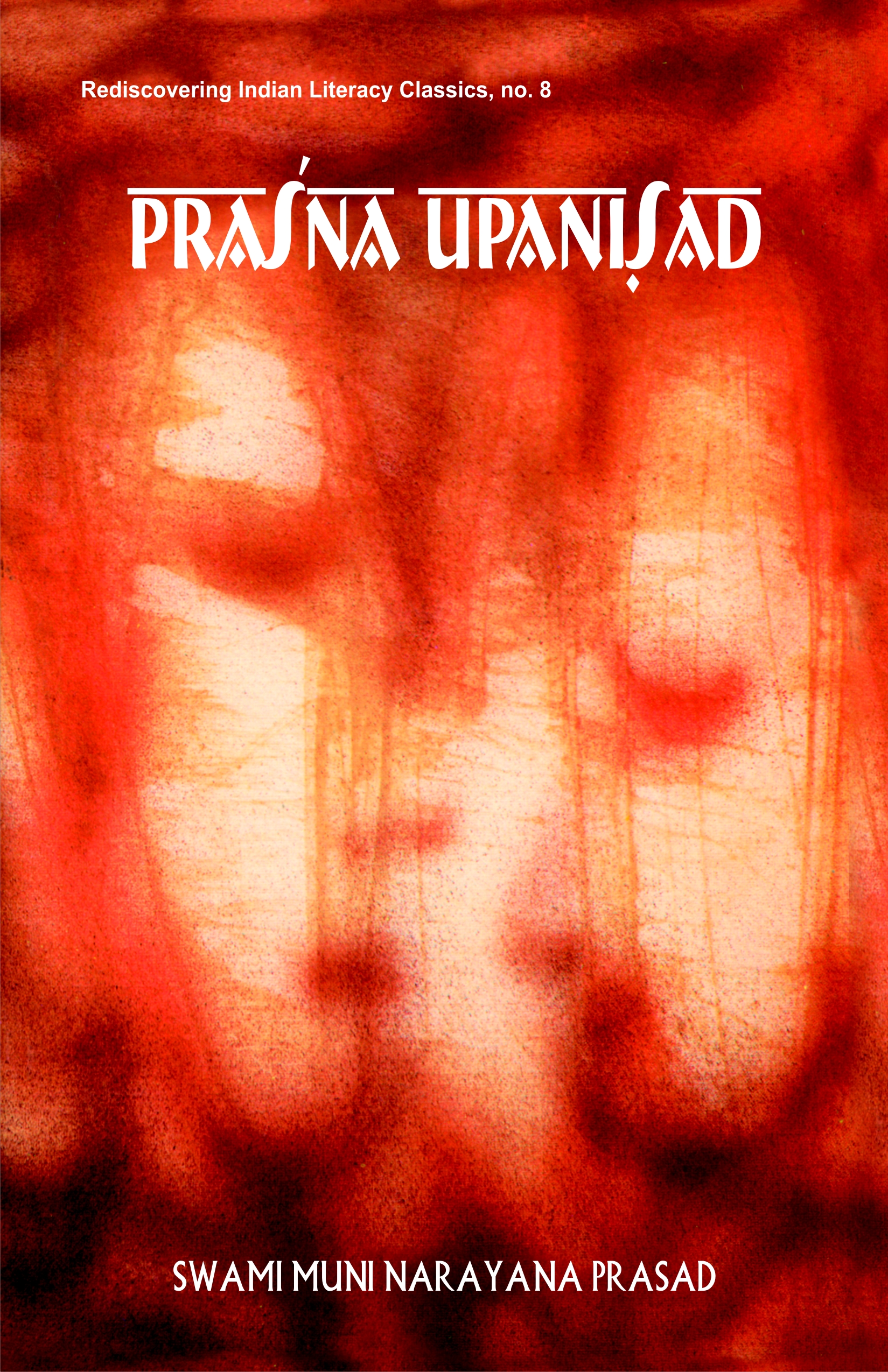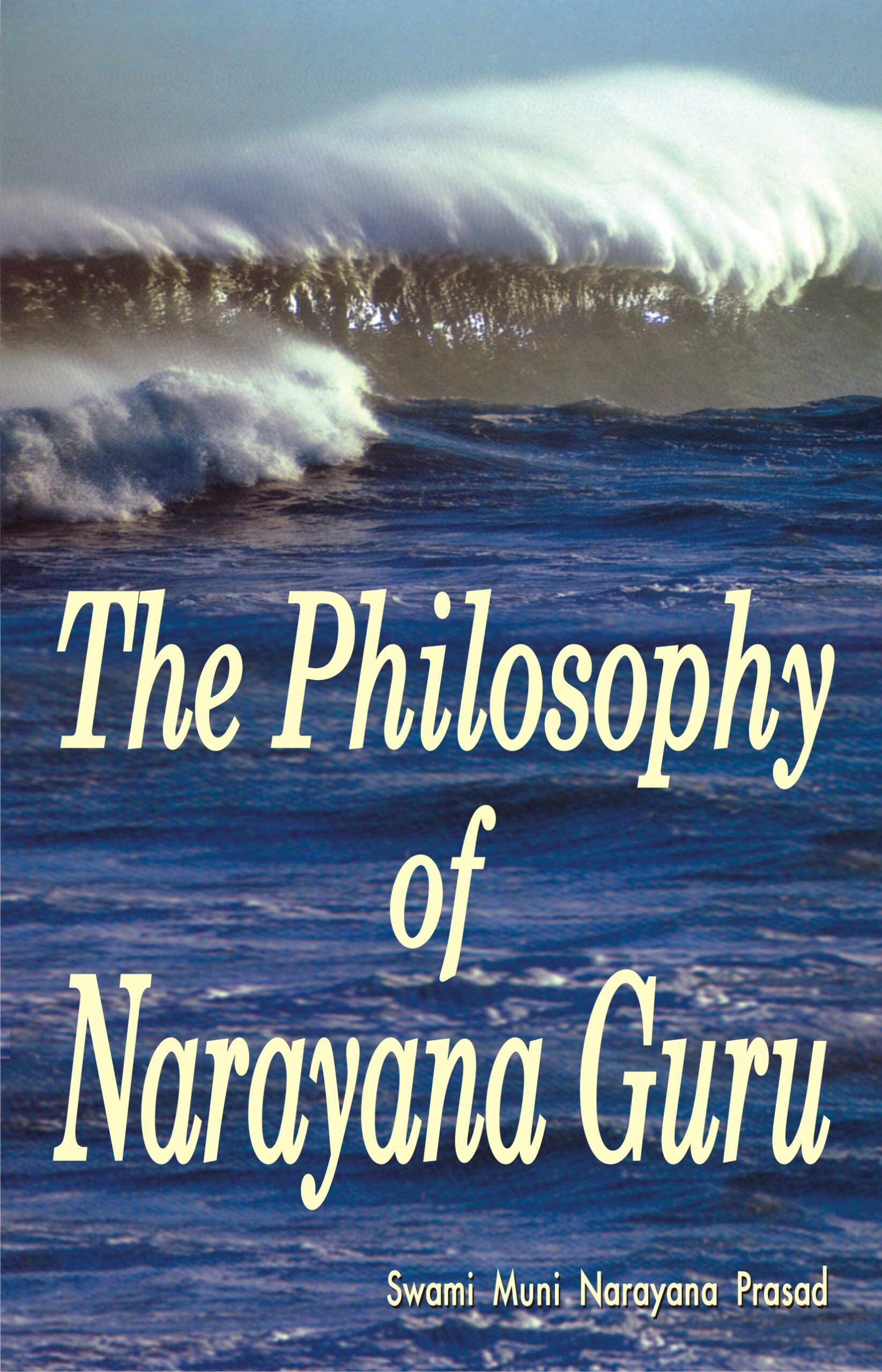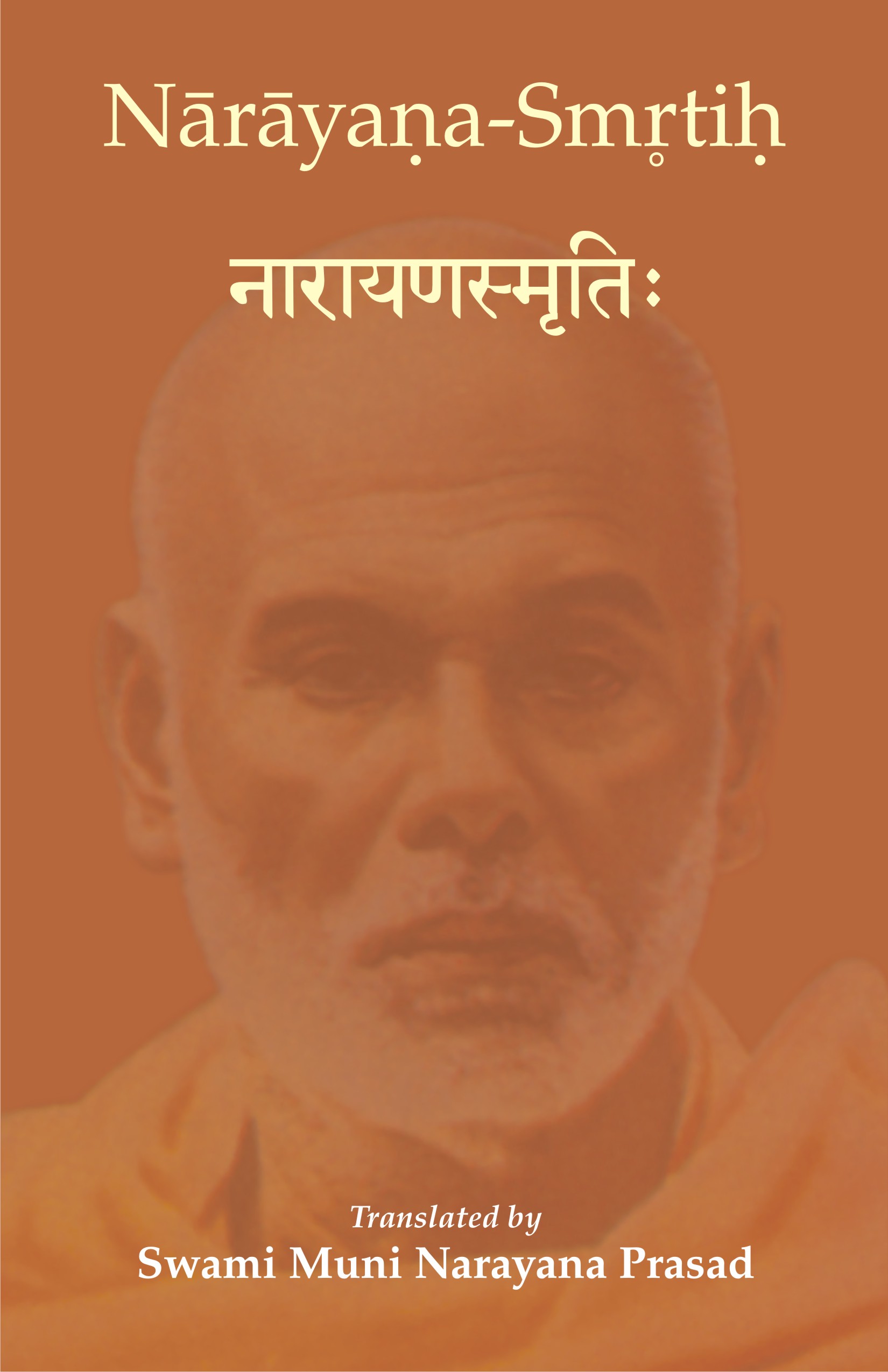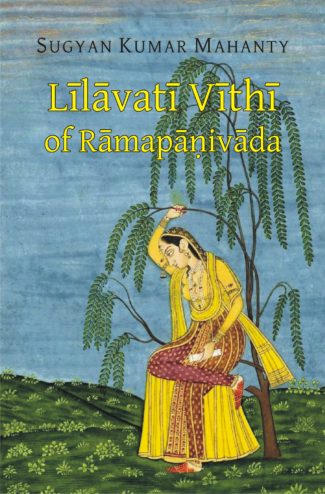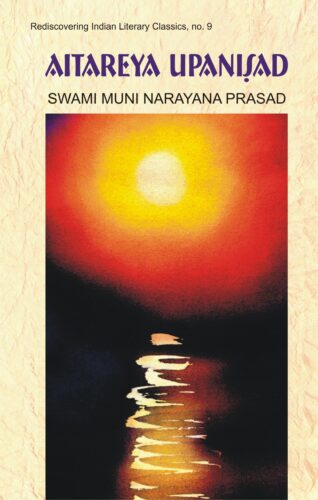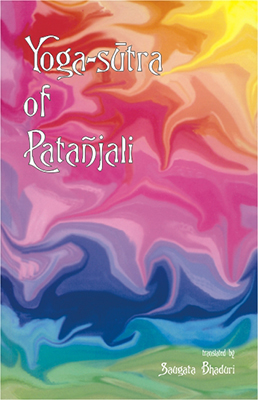-
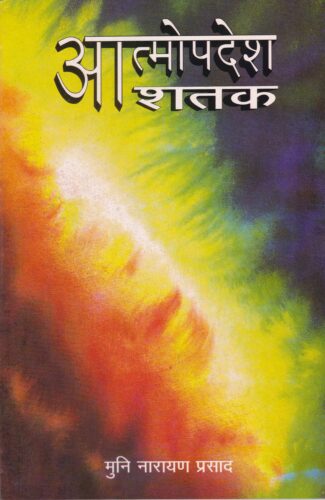
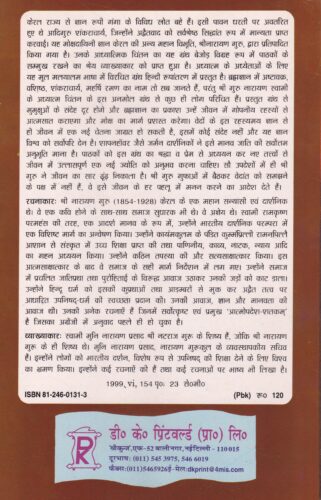
Atmopadesh Satak...
Atmopadesh Satak
One Hundred Verses of Self-Instruction by: Narayana Guru , Swami Muni Narayana PrasadAtmopadesa Sataka, mentioning one single principle, explains that mere virtue of gaining knowledge is not an end in itself. Its usefulness should be seen in the social, religious and veneration realms.
₹120.00 ₹108.00
ISBN: 9788124601310
Year Of Publication: 1999
Edition: 1st
Pages : iv, 156
Language : Hindi
Binding : Paperback
Publisher: D.K. Printworld Pvt. Ltd.
Size: 22 cm.
Weight: 200
Atmopadesa Sataka, mentioning one single principle, explains that mere virtue of gaining knowledge is not an end in itself. Its usefulness should be seen in the social, religious and veneration realms.

-
Sale!Lilavati Vithi of Ramapanivada by: Sugyan Kumar Mahanty
₹650.00₹585.00The Lilavati, a vithi, is the magnum opus of Ramapanivada, a versatile poet of eighteenth century ce, a resourceful and multitalented writer of almost all the genres of creative compositions, belonged to Kerala, India. The Lilavati is the best of all available specimens of vithi literature in the history of Sanskrit drama. The plot of the Lilavati Vithi is based on the love story between Virapala, the king of Kuntala, and Lilavati, the daughter of the king of Karnata.
The text of the present volume of Lilavati Vithi is carefully edited and presented with a Sanskrit commentary Praci in the light of Sanskrit dramaturgy as well as Indian rhetorics. The commentary Praci treats to critically evaluate various poetical aspects, like figures in speech and metres. The characteristics of vithi with the suitable examples from the Lilavati, the thirteen numbers of vithyangas, the type of amukha or prastavana are explored in the introduction. It also presents an account of the history of the literature of available and non-available vithi type in its introduction.
Present edition of Lilavati Vithi along with the Sanskrit commentary Praci and an extensive introduction in English and appendices will interest scholars and students of Indology who are focused on the study of Sanskrit literature. It will benefit the readers interested in classical Sanskrit literature. It will also be a supporting tool for the researchers of the history of classical Sanskrit literature in general and vithi literature in particular. -
Sale!Vada in Theory and Practice by: Radhavallabh Tripathi
₹1,300.00₹1,170.00Vada, meaning debates, dialogues, discussions, was the quintessential of Indian spirit, enabling and promoting the growth of different philosophical and knowledge systems of India. It percolated deep into our mindset and enriched the moral, ethical, religious and sociocultural edifice of anything that was essentially Indian in nature. As continuation of Anvikshiki from the bc era, vada helped thrive Indian traditional knowledge systems. It subsists on diversity and its tradition envisages pluralism.
Most of our Sanskrit works, covering a wide gamut of knowledge systems, are structured in the techniques of debate. This reality applies not only to the philosophical writings, but to Indian medical systems (Ayurveda), Arthashastra of Kautilya and Kamasutra of Vatsyayana as well. Even great epics like Ramayana and Mahabharata are no exceptions.
Vada culture involved verbal duals, attacks and even violence of speech, and all major religious systems — old or modern — were parties to it. This book also elucidates how vata was vital and critical for the growth of our socio-political fabrics. It shows how some of the major conflicts in philosophical systems were centred around karma, jnana, choice between violence and non-violence, pravritti and nivritti. It also presents the manifestations of vada on a vast canvas during the nineteenth and twentieth centuries. Modern spiritual and religious gurus like Ramana Maharshi, J. Krishnamurti and Vinoba Bhave were men of dialogues. Our scholars have applied the varied techniques of vada against the philosophical and scientific systems of the West to prove them correct.
This collector’s issue should enthrall a wide audience of philosophers, scholars and believers in Indian knowledge systems. -
Sale!Aitareya Upanisad by: Swami Muni Narayana Prasad
₹110.00₹99.00Yet another masterly piece of Hindu spiritual wisdom, Aitareya essentially reinforces the grand Upanishadic message which is neither a picturesque mythology nor a promise of heaven nor a threat of hell. It is yet another reminder (from the ancient seers) of our cosmic connection showing how this universe, this phenomenal world of ours, and all that is created, whether movable or immovable, are unfolded from one primeval casual Reality: atman, variantly called the Supreme Spirit, Pure Consciousness or Prajnanam Brahma; and how, in turn, atman perceives itself as the one underlying substance of all these phenomena. A distinguished exponent of Vedanta, Swami Muni Narayana Prasad reinterprets this Upanishad, developing refreshing insights into its textual discourse, its meaning, and its message. Also included in this critical commentary are its original Sanskrit text, Romanised transliteration, and verse for verse English translation. Appended to the Rigveda, Aitareya Upanishad comprises three chapters (IV-VI) of the Aitareya-Aranyaka which, in itself, is a continuation of Aitareya Brahmana. And as one of the principal Upanishads is invaluable as much to the discerning readers as to the scholars of Indian philosophy.
-
Sale!Yoga-Sutra of Patanjali by: Saugata Bhaduri
₹175.00₹158.00Patanjali’s Yoga-sutra, one of the most well-known works in the Indian classical tradition, is recognised as the primary text of Yoga philosophy. Here, Dr. Bhaduri adopts a simple but unique approach in his study of the text to make it more suitable to the needs of the Indian students. This English translation of the Yoga-sutra by Dr. Bhaduri under the guidance of Prof. Kapil Kapoor in shastra Group of Centre of Liguistic and English, at Jawaharlal Nehru University, retains many Sanskrit terms, adding the English equivalents in footnotes and the glossary to avoid making inadequate renderings of Sanskrit technical terms. It translates only what is stated in the concerned sutras without elaborate commentaries in order not to confuse the reader and to allow him to draw independent conclusions. Presenting the sutras in original Sanskrit form along with their Roman transcription, it examines the Yoga philosophy in relation to the other five orthodox systems of classical Indian philosophy and analyses the manner in which it deals with issues of cognition and signification.
-
Sale!Aditya Hrdayam by: Swami Tattvavidananda Saraswati
₹180.00₹162.00The ancient Indian tradition and literature accords a supreme place to the Sun in the order of divinities, revering and worshipping it as the life-force of the Universe and the highest Reality. The commentary by Swami Tattvavidananda Saraswati in this volume comes as an attempt to unravel the power and mystique of the Sun as explained in the Aditya Hrdayam, a small canto chapter offering obeisance to the Sun God in the immortal epic, Srimadramayanam of Adikavi Valmiki. The book presents the original Sanskrit mantras of the Aditya Hrdayam along with their Roman transliteration and lucid English translation. The verses are accompanied by detailed annotations that describe every term, concept and idea with great clarity. The commentary, easy to follow and fluent in flow, explores the secret of the eternal stotra, Aditya Hrdayam conveyed by Sage Agastya to Lord Rama using which the latter emerged victorious over Ravana. Aditya Hrdayam is hailed as one of the greatest tributes to the Sun by our ancient sages that provides insights into the importance of the Sun as the creator and sustainer of the Universe, the ultimate source of all wealth. The commentary involves copious references to Taittiriya Samhita, Taittiriya Aranyaka, Taittiriya Upanisad, Chandogya Upanisad, Srimadbhagavadgita, etc. , which make it all the more comprehensive and scholarly.

